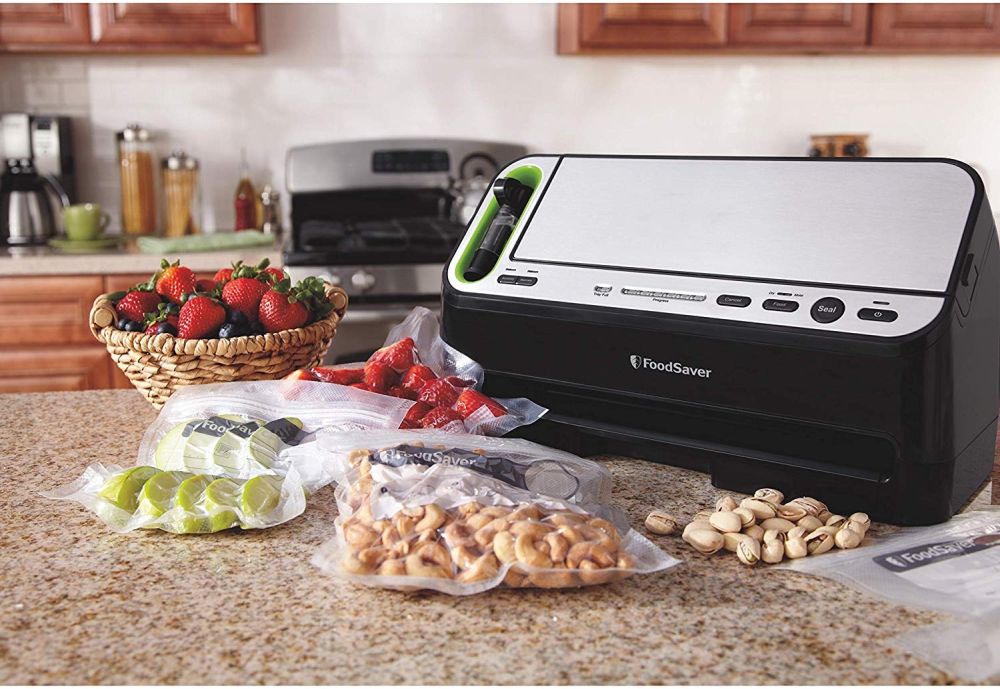Are you looking to improve the quality of your drinking water while also enhancing its taste and odour? Look no further than a water filter. Water filters are essential for removing harmful contaminants, improving the overall quality of your water, and reducing the environmental impact of plastic waste. In this blog post, we will explore the numerous benefits of using a water filter in your home.
drinking water filter
A drinking water filter serves as a crucial barrier between your tap and your glass, safeguarding you from a multitude of impurities that compromise your health.
Removing Harmful Contaminants from Your Water
One of the standout advantages of deploying a water filter in your home is its ability to sieve out a myriad of harmful contaminants that could be lurking in your tap water. These impurities, ranging from chlorine and lead to pesticides and various forms of bacteria, pose significant health risks. Not only can they affect the taste and safety of your water, but prolonged exposure to such pollutants can lead to health issues over time. A well-chosen water filter acts as a vigilant gatekeeper, ensuring these contaminants are efficiently trapped and removed before reaching your glass. This process is critical for maintaining the purity of your water and safeguarding your well-being. As tap water travels through miles of pipeline, it can pick up various pollutants. Here, a water filter proves invaluable, providing a final, crucial layer of protection to ensure the water you consume is as clean and healthy as possible. Through this advanced filtration, you’re not just improving the immediate quality of your drinking water—you’re taking a proactive step towards long-term health and safety for yourself and your loved ones.
Enhancing the Taste and Odor of Tap Water
One of the more immediate benefits of installing a water filter in your home is the noticeable improvement in tap water’s taste and odour. Unfiltered tap water can often carry an unpleasant taste or smell, usually due to chlorine used in municipal water treatment, metals such as lead and copper from old pipes, or organic compounds that affect water quality. These elements can make the water less appealing, leading to decreased water consumption or the increased purchase of bottled water. A water filter effectively removes these offending substances, leaving behind water that is fresher and more palatable. This enhancement in taste encourages more water consumption, contributing to better hydration and overall health. Furthermore, removing these contaminants means that the water you use for cooking also tastes better, potentially improving the flavour of your meals. With a water filter, drinking water becomes a more enjoyable experience, promoting a healthier lifestyle choice that is both easy and beneficial to maintain.
How to find the best water filter
- **Determine Your Water Quality Needs**: Start by testing your water to identify specific contaminants that need to be targeted. This knowledge is crucial for choosing a filter that addresses your water’s unique challenges. 2. **Consider Filter Types and Technologies**: Research the different filters available, such as pitcher filters, faucet-mounted models, under-sink systems, and whole-house units. Understand the technology each employs, like activated carbon or reverse osmosis, to match your specific purification needs. 3. **Look for Certification and Performance Standards**: Opt for water filters certified by reputable organizations like NSF International or the Water Quality Association, which ensure the filter meets strict health and safety standards. 4. **Assess Installation and Maintenance Requirements**: Evaluate whether you prefer a DIY-friendly option or a more complex system that might require professional installation. Also, long-term maintenance needs and ease of replacing filter cartridges should be considered. 5. **Compare Cost and Efficiency**: While initial costs are important, consider the filter’s longevity and the cost of replacement cartridges. A more expensive upfront investment might be more cost-effective over time due to higher efficiency and lower maintenance costs.
Cost Savings Compared to Bottled Water
Adopting a water filter at home presents a financially savvy choice, particularly when compared to the ongoing expenses of bottled water. The initial investment in a water filtration system can quickly pay for itself, as the cost per gallon of filtered tap water is significantly lower than that of bottled water. This shift saves you money over time and spares you the inconvenience of purchasing, transporting, and storing bottled water. Additionally, with a reliable water filter, you can enjoy the convenience of unlimited clean drinking water without recurring costs, effectively streamlining your household expenses while ensuring access to quality hydration. This approach benefits your wallet and supports a more sustainable lifestyle by reducing the demand for single-use plastic bottles and aligning your financial savings with environmental stewardship.
Environmental Impact of Reducing Plastic Waste (5 subheadings)
**Decreasing Landfill Space Consumption**: Every plastic water bottle discarded contributes to the growing problem of landfill space consumption. By opting for a water filter, households reduce their contribution to this issue, as fewer plastic bottles end up in landfills where they can take centuries to decompose.
**Mitigating Ocean Pollution**: Plastic water bottles significantly contribute to ocean pollution, harming marine life and ecosystems. Using a water filter diminishes the demand for bottled water, thus decreasing the amount of plastic that potentially ends up in our oceans.
**Lowering Carbon Footprint**: Plastic water bottle production, transportation, and disposal generate considerable amounts of greenhouse gases. Transitioning to a water filter system at home helps reduce these emissions, contributing to the fight against climate change.
**Conserving Natural Resources**: Manufacturing plastic water bottles consumes vast amounts of oil and water. A shift towards using water filters conserves these precious natural resources, supporting more sustainable consumption patterns.
**Promoting Biodiversity**: Plastic waste threatens wildlife through ingestion and entanglement, especially in marine environments. By reducing plastic waste production, water filters protect Biodiversity and ensure healthier habitats for all species.
Easy Maintenance and Accessibility of water purifiers for home
Maintaining a water filter in your home is surprisingly straightforward, designed to fit seamlessly into your daily routine without extensive knowledge or effort. These systems, whether pitcher types, under-sink models, or whole-house units, are built with the user in mind, ensuring that upkeep is minimal and replacing cartridges is a simple, user-friendly process. For most homeowners, checking the filter’s condition and replacing it as needed—typically every few months, depending on the model and water usage—constitutes the bulk of maintenance work required.
Additionally, accessing the right water filter for your home has never been easier. The market offers various options tailored to meet individual needs and preferences, ranging from basic models that reduce chlorine taste and odour to more advanced systems capable of removing specific contaminants identified in your water supply. With this variety, you can find a water purification solution that fits your budget and addresses the particular water quality issues you face. The convenience of online shopping platforms and local home improvement stores means that selecting and purchasing the ideal water filter system is both hassle-free and accessible, allowing you to take a significant step towards healthier, cleaner drinking water with ease.
The Role of Water Filters in Emergency Preparedness (5 subheadings)
**Ensuring Safe Drinking Water During Disruptions**: Natural disasters and unforeseen emergencies can compromise the safety of public water systems, making it crucial to have a water filter that can purify contaminated water. This ensures access to safe drinking water when it’s needed most.
**Independence from Public Water Supplies**: In scenarios where public water supplies are temporarily unavailable or contaminated, having a water filter allows individuals to process water from natural sources, ensuring continuous access to drinkable water.
**Cost-Effectiveness in Crisis Situations**: Relying on bottled water during emergencies can be expensive and logistically challenging. A water filter represents a one-time investment that can provide clean water without additional costs, even in times of crisis.
**Portability for Evacuation Scenarios**: Some water filters are designed to be portable, making them an essential component of emergency kits. These filters can be used on the go, providing clean water from available sources during evacuations.
**Reduction of Reliance on Emergency Services**: By ensuring your household has access to clean water through a water filter, you lessen the immediate demand for emergency services and supplies, directing those resources to areas in greater need.
Conclusion
Embracing a water filter within your household transcends beyond merely ensuring the safety and palatability of your drinking water; it embodies a conscientious lifestyle choice. Its many advantages, from safeguarding health by filtering out harmful contaminants to promoting a more sustainable approach by diminishing the reliance on plastic bottles, underscores its significance. Moreover, the economic benefits, highlighted by the substantial savings compared to the continuous expense of bottled water, further bolster the case for making this investment. It is a commitment to personal and environmental well-being, fostering a culture of mindful consumption and proactive health management. The journey towards cleaner, healthier drinking water facilitated by a water filter elevates the quality of life and aligns with broader goals of ecological preservation and resource conservation. Transitioning to a water filter is not just a practical decision for the present but a forward-thinking choice that resonates with future generations, ensuring a legacy of purity, safety, and respect for the planet.
FAQs
Q: How frequently do I need to change my water filter cartridge?
A: The lifespan of a water filter cartridge can vary depending on the model and your water usage. Generally, replacing it every 6 months is advisable to maintain the best quality of your drinking water. However, some filters may have a longer or shorter lifespan, so always refer to the manufacturer’s recommendations for guidance.
Q: Can a water filter eliminate all types of contaminants?
A: Water filters are highly effective at reducing a wide array of contaminants, but no filter can remove 100% of all substances. A filter’s effectiveness depends on its design and the technology it uses. To address specific concerns about contaminants, select a filter that targets the pollutants found in your water supply, as identified by a water quality test.
Q: Over time, have water filters proven to be a cost-efficient solution?
A: Absolutely; investing in a water filter can lead to significant savings over time, especially when compared to the ongoing costs of purchasing bottled water. Not only does it provide a more economical approach to accessing clean drinking water, but it also reduces the environmental impact associated with plastic bottle consumption. Remember, the initial cost of a water filter system can quickly be offset by the savings from not buying bottled water, making it both an economically and environmentally wise choice.
| Related Business Listings |
| Contact Directory |
| Local Business Profiles |



